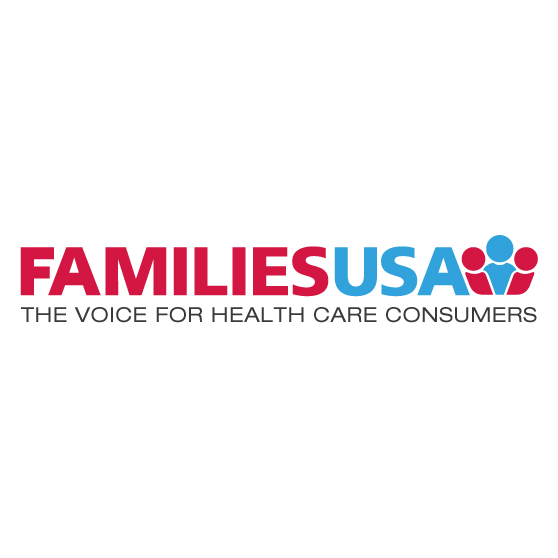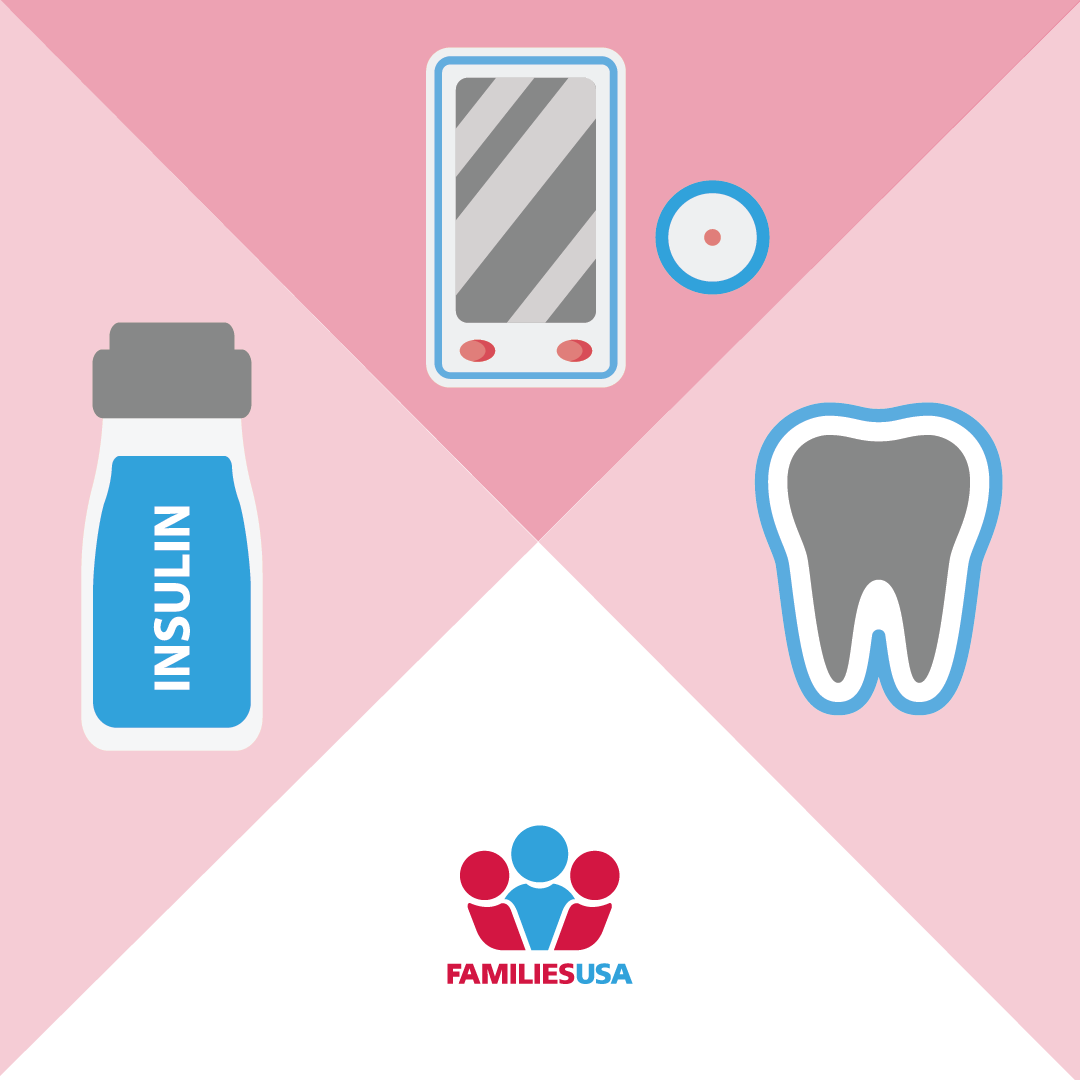
Prescription Drug Price Gouging: Maryland’s Landmark Law Protects Consumers
By Ellen Albritton, Melissa Burroughs,
05.30.2017
There is no shortage of reports of prescription drug companies hiking the prices of life-saving medicines by 100, 1000, even 10,000 percent, sometimes overnight. Consumers have seen drastic price increases, sometimes referred to as “price gouging,” both with expensive new drugs and with generics and older drugs that have been on the market for a long time. As a result, nearly 1 in 4 people who take prescription drugs have a difficult time affording them.
Families USA has been taking an active role on this issue through our Prescription Drug Pricing Collaborative. The Collaborative offers support to state advocates working on a variety of legislation to combat high and rising drug prices and works to build momentum for federal change. We’re thrilled to report our first big success in Maryland this legislative session.
Maryland just became the first state to enact a law that protects consumers from price gouging by prescription drug manufacturers. The new law allows the state’s attorney general to sue generic drug manufacturers who engage in price gouging and return that money to consumers and others that pay for these drugs or make the drug available at its previous price. This legislation sets an example for states looking to protect their citizens from high drug prices and puts public pressure on federal lawmakers to take action.
Maryland Attorney General Brian Frosh and Vincent DeMarco and Matt Celentano, of the Maryland Citizen’s Health Initiative, led the campaign to pass this bill. We talked to them about the bill’s importance and what advocates in other states can learn from their win.
Families USA: Why is this legislation so important for Maryland consumers?
Vincent DeMarco and Matt Celentano: Maryland consumers, like all Americans, are feeling the pain of skyrocketing prescription drug prices. Before this law, there really was no protection for consumers from these price hikes. And it’s not just the price hikes grabbing headlines (like Daraprim, Naloxone, and EpiPen), there have also been significant hikes on insulin for people with diabetes and albuterol for children with asthma.
These are drugs that were developed decades ago, and consumers are getting exploited just to increase some pharmaceutical corporations’ profits. But now with this legislation, there’s a new sheriff in town in Attorney General Frosh, and Marylanders will now be protected.
Families USA: Why was price gouging a concern for you as Maryland’s attorney general?
Attorney General Frosh: This has been a problem across the country and in Maryland. If there’s robust competition between three or four generics, the price would drop significantly, down to 20% of the cost of the branded drug. That’s what you’d expect when there is no longer a monopoly. Instead, over the past several years, we’ve seen prices of generic drugs start to skyrocket.
My office is also suing six generic drug manufacturers for a price fixing conspiracy. But it’s not always clear if these price gouging situations always violate antitrust statutes, so it seemed to me that we needed something that gives us the ability to address price increases that are unjustified and harmful to consumers.
“We needed something that gives us the ability to address price increases that are unjustified and harmful to consumers.”
Families USA: What would you say to advocates in other states who want to work with the attorney general in their state on similar legislation?
DeMarco and Celentano: Attorney General Frosh has been interested in this issue for a while—he’s written op-eds and is engaged in related lawsuits. And the anti-price gouging bill is a smart way to engage with the attorney general and it really fits into the attorney general’s role. It’s also useful to emphasize the bipartisan nature of the bill: It passed here with virtually everyone in both parties supporting it. People, regardless of political party, think drug prices are too high and want to see action taken to address those prices.
Frosh: Attorneys general and legislators across the United States are focused on this, and my office has heard from many of them. Attorneys general are charged with protecting consumers, so it can be really useful to have them involved. But you don’t need the attorney general to be involved—any state legislator can introduce a bill like this.
It is a heavy lift—the pharmaceutical companies are extremely powerful and they’re usually able to kill bills like this. But they weren’t able to this time because people are really feeling the pain, and because of Maryland Citizen’s Health Initiative’s excellent organizing skills.
Families USA: The coalition advocating for this legislation includes faith, business, labor, academics and even climate groups. How were you able to assemble such a broad coalition?
DeMarco and Celentano: It’s what we do. That is the core of who we are. We’ve been doing this since the 1990s. It’s very, very important to be out in the community, engaging the public, and building the coalition and the public support before you even go to the legislature.
It was helpful for building support that we were out there with good polling on the “voter mover power” of this issue and a lot of publicity. When the legislative session started, we already had our radio ads running, ahead of anything the pharmaceutical industry did. We also had a very easy one-page document available for organizations to sign.
The pharmaceutical industry has never lost on a bill like this, and now they have. They have a lot of resources and a lot of lobbyists, but they couldn’t overwhelm the public outcry from constituents.
Families USA: What else do you think needs to happen to protect consumers from high drug prices?
DeMarco and Celentano: We were also pushing a drug pricing transparency bill that would require drug companies to give advance notice of increases and disclose other information that didn’t pass this session, but that would be helpful in three ways:
- It’s a deterrent. If you’re going to jack up the prices and have to show that half of that is just marketing costs and the other half is more profit, you’re going to think twice.
- It gives the public information so they have an idea for whether this price increase is justified, and whether they should be spending all this money on this drug, especially if they had advance notice of the increase.
- It gives this information to experts so they can really analyze it and report whether or not there really is a justification for these price hikes.
Frosh: If there were robust disclosure laws, if there was more transparency, that would be helpful. Brand name drug manufacturers invest millions of dollars in development of these drugs, and those don’t always work out, so it makes sense for drug companies to set an initial price that allows them to recoup costs. But after that, I think consumers are entitled to a break.
This legislation will knock out the worst cases, but it won’t be a panacea. There will still be increases of 20, 30, 40%, where those increases aren’t really justified. But my office can only focus on the most egregious cases because of how the bill is written and because of limited resources.
For information about Families USA’s Drug Pricing Collaborative, contact mburruoghs@familiesusa.org




